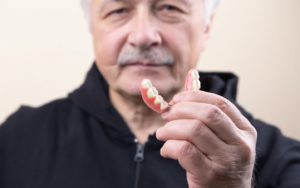What Causes Teeth to Wear Down Over Time?


In addition to the expected wear and tear, medications, health issues and infections such as periodontitis can add additional damage to your teeth. Below is a list of some of the most common causes of tooth wear that you can watch out for.
If you are already suffering the effects of tooth wear or any other dental issues, then book a consultation today to have San Diego’s very own mobile dentist come and visit you.
Causes of Dental Wear
Grinding your teeth
Some people have the bad habit of clenching and grinding their teeth when they are stressed or frustrated, while others may do this in their sleep. This behavior is called bruxism, and it can wear down your teeth over time if not addressed.
Abrasion
Chewing on hard objects such as the cap of a pen, your fingernails, ice cubes or even brushing your teeth with too much force and with a very tough brush can wear away the enamel on your teeth. This is why using a toothbrush with softer bristles and being gentle on your teeth is so important.
Acidic Foods and Drinks
Carbonated drinks, citrus fruits and food and drinks that contain lots of sugar all create an acidic environment inside of your mouth. The acids then eat away at your enamel, wearing down your teeth faster than normal. Try to follow these foods with a portion of cheese, milk or any other food with low acidity levels.
Bacteria and Plaque
Poor dental hygiene, illnesses or some medications that affect your dental hygiene can lead to the buildup of plaque and bacteria that can eat away at your enamel as well as the underlying bone structures. If you have sore, swollen or bleeding gums, an illness such as diabetes or take medications that are known to harm your dental hygiene, then you will need to make frequent visits to your dentist.
If the trip to your local dentist’s office is not a realistic option, then you can take advantage of our mobile dentist here in San Diego who can come and visit you wherever you are. Contact us now to book a consultation.
Content found on this blog is intended for educational purposes only and should not be used as a substitute for professional judgement, advice, diagnosis, or treatment. Please speak with a professional if you have concerns about your oral health.